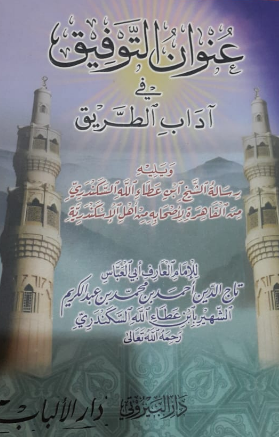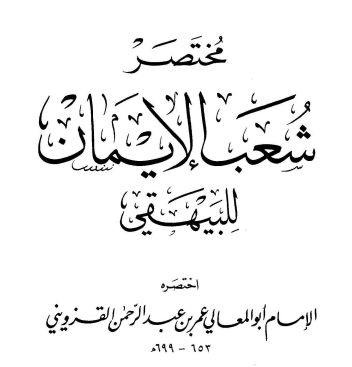thread 1/n
many ulama have composed tazmeen تضمين of alahazrat's salam. one of the best known tazmeen is that of allamah sayyid marghoob akhtar al-hamidi.
rendered here in full:
many ulama have composed tazmeen تضمين of alahazrat's salam. one of the best known tazmeen is that of allamah sayyid marghoob akhtar al-hamidi.
rendered here in full:
2/n
for those who do not know what tazmeen is: it is the practise of adding one's own lines to someone else's poem. usually, it is to a famous poem or a line. if the original poem is a couplet, they usually add 3-lines and make it a 5-line stanza called "takhmees" التخميس
for those who do not know what tazmeen is: it is the practise of adding one's own lines to someone else's poem. usually, it is to a famous poem or a line. if the original poem is a couplet, they usually add 3-lines and make it a 5-line stanza called "takhmees" التخميس
3/n
this practise comes from arabic poetry and one of my favourite tazmeen is that of sayyidi ibn ata'illah al-sakandari, who appended to a short poem by shaykh al-akbar muhiyuddin ibn arabi. and then wrote a commentary to the poem.
this practise comes from arabic poetry and one of my favourite tazmeen is that of sayyidi ibn ata'illah al-sakandari, who appended to a short poem by shaykh al-akbar muhiyuddin ibn arabi. and then wrote a commentary to the poem.
4/n
this poem is 'aadab al-tariq' by ibn arabi on the manners of the path of tasawwuf; takhmees by sayyidi ibn ata'illah and the name of the commentary is "unwan al-tawfiq fi aadab al-tariq"



this poem is 'aadab al-tariq' by ibn arabi on the manners of the path of tasawwuf; takhmees by sayyidi ibn ata'illah and the name of the commentary is "unwan al-tawfiq fi aadab al-tariq"




5/n
===
alahazrat's famous salam: mustafa jaan e rahmat pe lakhon salam has received many *tazmeen*s and these have also been published. i happened to collect some of them and i thought of sharing them as the urs of alahazrat is near.
=====
===
alahazrat's famous salam: mustafa jaan e rahmat pe lakhon salam has received many *tazmeen*s and these have also been published. i happened to collect some of them and i thought of sharing them as the urs of alahazrat is near.
=====
7/n
---------------------
2. qari muhammad amanat rasul.
this has recommendations by ulama such as sayyid aal e rasul nazmi miyan, who wrote a versified attestation.


---------------------
2. qari muhammad amanat rasul.
this has recommendations by ulama such as sayyid aal e rasul nazmi miyan, who wrote a versified attestation.



8/n
---------------------
3. muhammad abdu'l qayyum "tariq" sultanpuri has written THREE tazmeens!
the first is titled "baran e rahmat"


---------------------
3. muhammad abdu'l qayyum "tariq" sultanpuri has written THREE tazmeens!
the first is titled "baran e rahmat"



10/n
---------------------
5. his third tazmeen: "bustan e rahmat"
(poet: abdu'l qayyum tariq sultanpuri)
however, unlike the earlier two which are full tazmeens, this one omits some lines out of 171 lines of the original salam.


---------------------
5. his third tazmeen: "bustan e rahmat"
(poet: abdu'l qayyum tariq sultanpuri)
however, unlike the earlier two which are full tazmeens, this one omits some lines out of 171 lines of the original salam.



11/n
---------------------
6. bashir husayn nazim qadri titled: "khwan e rahmat"
prof. sayyid masud ahmad wrote a foreword to this.



---------------------
6. bashir husayn nazim qadri titled: "khwan e rahmat"
prof. sayyid masud ahmad wrote a foreword to this.




12/n
--------------------
in the foreword of the above work (khwan e rahmat) prof. masud mentions another tazmeen: "there are two tazmeens in front of me..." and compares them. the first is that of bashir qadri and other he mentions is:
tazmeen# 7. sabiru'l qadiri
--------------------
in the foreword of the above work (khwan e rahmat) prof. masud mentions another tazmeen: "there are two tazmeens in front of me..." and compares them. the first is that of bashir qadri and other he mentions is:
tazmeen# 7. sabiru'l qadiri

13/n
--------------------
prof. hafeez ta'ib in the second foreword of the same book, khwan e rahmat, mentions as many as 5 other poets and samples of their tazmeen to the salam. i do not know whether these tazmeens were partial or full.
--------------------
prof. hafeez ta'ib in the second foreword of the same book, khwan e rahmat, mentions as many as 5 other poets and samples of their tazmeen to the salam. i do not know whether these tazmeens were partial or full.
14/n
-------------------------
regardless, we will count them as tazmeens that existed. (will have to hunt for them)
#8. shams barelwi
#9. aslam bastawi
#10. raja rashid mahmoud
#11. abdu's salam shafiq
#12. habib muhammad muhsin maz'hari



-------------------------
regardless, we will count them as tazmeens that existed. (will have to hunt for them)
#8. shams barelwi
#9. aslam bastawi
#10. raja rashid mahmoud
#11. abdu's salam shafiq
#12. habib muhammad muhsin maz'hari




15/n
--------------------
(cont' from previous tweet) so the #12 tazmeen is by habib muhsin maz'hari, sample in this tweet
--------------------
(cont' from previous tweet) so the #12 tazmeen is by habib muhsin maz'hari, sample in this tweet

16/n
----------
#13. dr. sayyid hilal ja'afari's tazmeen titled: "jaan e rahmat"
sayyid ahmad kazmi shah sahib wrote a recommendation to this tazmeen in 1966.


----------
#13. dr. sayyid hilal ja'afari's tazmeen titled: "jaan e rahmat"
sayyid ahmad kazmi shah sahib wrote a recommendation to this tazmeen in 1966.



17/n
--------------------
here is the taqriz or the recommendation of kazmi shah sahib rahmatullahi alayh:
--------------------
here is the taqriz or the recommendation of kazmi shah sahib rahmatullahi alayh:

18/n
--------------------
it is pertinent to note that sayyid hilal ja'afari sahib also wrote a tazmeen on alahazrat's qasidah miyrajiyyah.
--------------------
it is pertinent to note that sayyid hilal ja'afari sahib also wrote a tazmeen on alahazrat's qasidah miyrajiyyah.

19/n
--------------------
another recommendation to hilal ja'afari sahib's tazmeen is that of aziz hasilpuri, a poet and who has written a partial tazmeen himself:
#14. aziz hasilpuri "tazmeen e mubeen" (partial)

--------------------
another recommendation to hilal ja'afari sahib's tazmeen is that of aziz hasilpuri, a poet and who has written a partial tazmeen himself:
#14. aziz hasilpuri "tazmeen e mubeen" (partial)


23/n
--------------------
#18. "tazmeen e gauhar" by mahbub gauhar islampuri; also a partial tazmeen

--------------------
#18. "tazmeen e gauhar" by mahbub gauhar islampuri; also a partial tazmeen


24/n
--------------------
#19. tazmeen by muhammad usman awj a'azami.
has a foreword by mufti muhammad ahmad misbahi.

--------------------
#19. tazmeen by muhammad usman awj a'azami.
has a foreword by mufti muhammad ahmad misbahi.


25/n
--------------------
#20. tazmeen by pir naseeruddin naseer golrawi (grandson of the great sunni imam and mujaddid sayyid mihr ali shah golrawi, who emphatically believed in the superiority of abu bakr al-siddiq radiAllahu anhu)
pir nasir's poetry is rich no doubt.


--------------------
#20. tazmeen by pir naseeruddin naseer golrawi (grandson of the great sunni imam and mujaddid sayyid mihr ali shah golrawi, who emphatically believed in the superiority of abu bakr al-siddiq radiAllahu anhu)
pir nasir's poetry is rich no doubt.



26/n
-----
in a compilation of tazameen, shahzad ahmad has collected samples from 10 tazmeen. all others were mentioned above. one name is new in this collection.
#21 sufi masuud ahmad rahbar mahbubi chishti kashmiri
-----
in a compilation of tazameen, shahzad ahmad has collected samples from 10 tazmeen. all others were mentioned above. one name is new in this collection.
#21 sufi masuud ahmad rahbar mahbubi chishti kashmiri

27/27
----
disclaimer: other than the tazmeen of sayyid akhtar al hamidi i haven't read all others with a critical eye. so if there are any issues with some lines, do not take my mention as an endorsement. i have seen a critique of tazmeens and a counter-critique. be warned.
----
disclaimer: other than the tazmeen of sayyid akhtar al hamidi i haven't read all others with a critical eye. so if there are any issues with some lines, do not take my mention as an endorsement. i have seen a critique of tazmeens and a counter-critique. be warned.
• • •
Missing some Tweet in this thread? You can try to
force a refresh



















